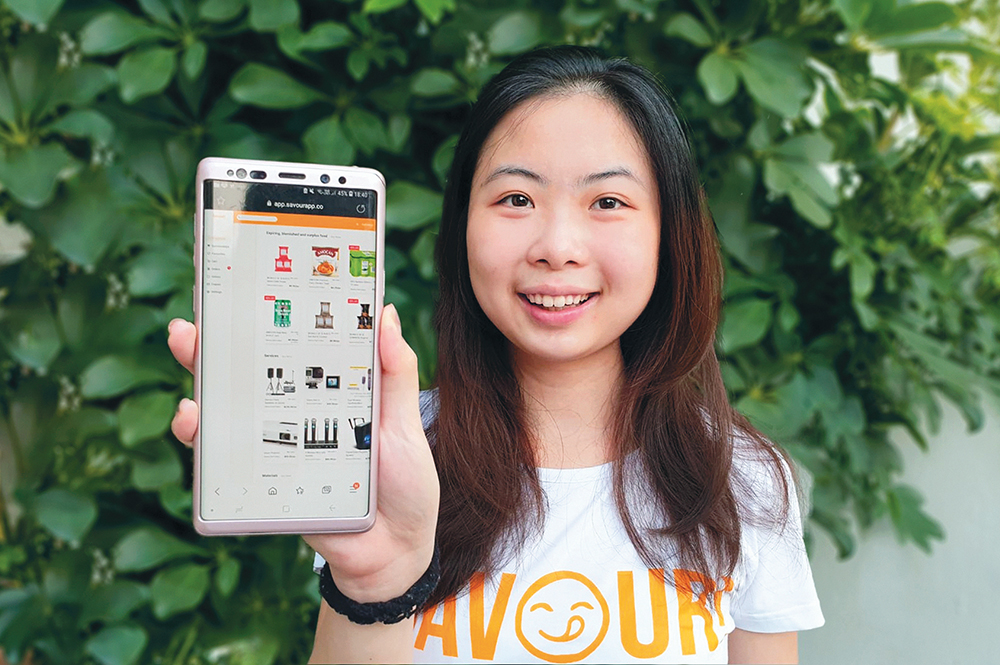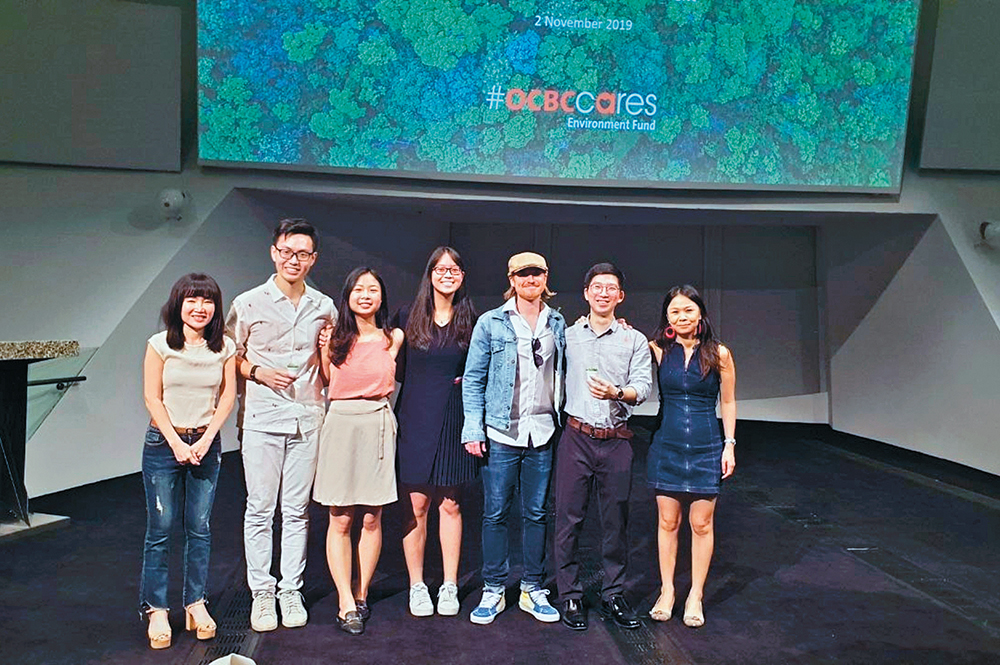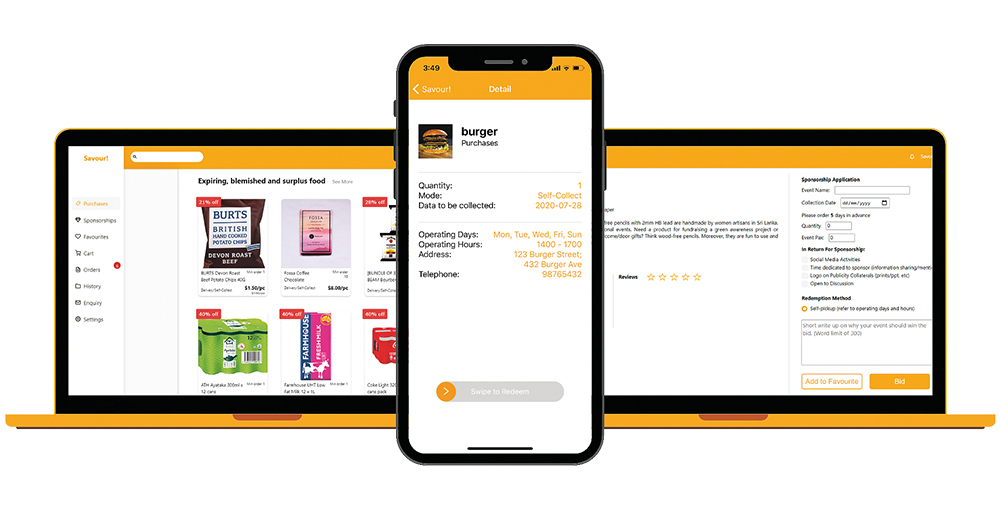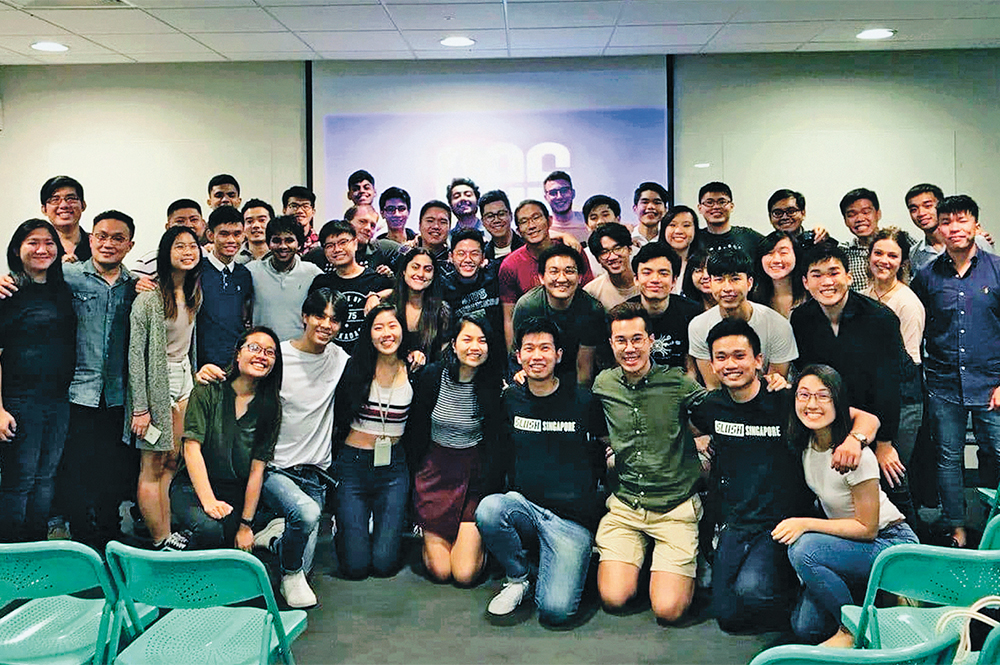Savouring The Journey
Ms Katrina Lee (Business ’21) is the co-founder and CEO of a startup that aims to fight food waste in Singapore.

Food insecurity was an issue that then-NUS Business School Year 3 student Ms Katrina Lee witnessed first-hand when she volunteered with community service clubs to distribute food rations to low-income households in Singapore. During such sessions, Ms Lee noticed recipients did not want commonly-donated items such as canned soup and instant noodles, as these were staples which most of them already had.
While working part-time in the F&B industry, Ms Lee also observed how restaurateurs threw away perfectly edible food by the bulk at the end of the day – it being more convenient to dispose than to resell or donate them. She also saw how water insecurity and water pollution directly affected the local community when she worked at an international consulting agency, The Water Agency in Myanmar, during a summer internship.
These experiences inspired her to co-found tech social enterprise Savour! to tackle food waste and food insecurity in Singapore – a topic that has grown in salience with the advent of COVID-19. Officially launched in August 2020, this one-stop business-to-business (B2B) e-commerce marketplace website and app platform seeks to connect companies such as retailers and importers to other companies and non-profit organisations to procure regular, expiring, blemished and surplus food at corporate discounts, as well as in-kind sponsorships for their operations, programmes and events.
 Ms Lee (third from left) with her Savour! teammates and judges from The OCBC Green Pitch 2019.
Ms Lee (third from left) with her Savour! teammates and judges from The OCBC Green Pitch 2019.
From dream to reality
The journey to the company’s launch was not an easy one. Ms Lee had first come up with the idea a year earlier, when she was a member of student group Enactus NUS (now called NUS Social Impact Catalyst), pitching it to other members in the student group to join her core team. To gain customers, she started out by cold-calling potential customers and merchants. A breakthrough came when she and her team won The OCBC Green Pitch 2019 for Savour!. This helped to secure funding to develop the platform, acquire customers and manage operations.
Ms Lee shares that during her first month of trying to do so, she sent out 100 emails to potential merchants and received only one reply. “Most were small-to-medium-sized enterprises that had not heard about sustainability,” she recalls. “The challenge was to convince them of the benefits of reducing food waste through the platform — they would be able to recoup costs, clear inventory and generate positive publicity.” She used various channels to reach out to them and even visited the stores. “I then tried different ways of pitching to them to see what worked best,” she adds.
Ms Lee’s persistence has paid off. To date, Savour! counts about 140 merchants and B2B customers on its platform, including brands and non-profit organisations such as Gong Cha, Grain, Beyond Social Services and The Salvation Army, as well as student groups such as NUS Students’ Community Service Club and NUS Students’ Business Club. Her team has also since grown to 10, with other NUS students, Ms Jessie Chia and Ms Zatalyn Ho, joining the startup to work on marketing and business development. The platform has even expanded its offerings to include corporate gifts, office supplies and event rental services.
Ms Lee credits the rigour of a NUS Business education for equipping her in her startup journey. “The courses that I took, confidence gained from the active class participation, and high expectations of presentation skills and content set by my professors trained me to deliver compelling pitch decks confidently to engage my stakeholders and encourage buy-ins,” she says. These have also served her well in her role as Savour!’s CEO, where she oversees marketing, business development and finance within the company.
 The Savour! platform on laptop and phone. Savour! was officially launched in August 2020 after a year of groundwork done by Ms Lee and her team.
The Savour! platform on laptop and phone. Savour! was officially launched in August 2020 after a year of groundwork done by Ms Lee and her team.
 Ms Lee (third from left, second row) with her peers at the NUS Entrepreneurship Startathon module.
Ms Lee (third from left, second row) with her peers at the NUS Entrepreneurship Startathon module.
![]()
If you have an idea, just do it. You don’t have to have a complete idea or team to start digging into the issues and working through possible solutions. Don’t be afraid of rejections and embarrassing yourself.
Helping aspiring entrepreneurs
Even while a student, Ms Lee found time to pursue her twin passions of fostering entrepreneurship and giving back. She even took time out to co-found NUS Angel Ventures – a student group that connects NUS alumni who are angel investors and mentors with startups by NUS students and graduates. The inspiration to do so came after meeting many student entrepreneurs at NUS Entrepreneurship Startathon (a NUS Design-Your-Own-Module entrepreneurship module).
“I got to know many student startup founders there who had ideas with traction and potential and just needed the funding to execute them,” she shares. “I was fortunate enough to secure funding for Savour!, but there are many students who face challenges with this. I want to help, and I see this as my way of giving back to the NUS community both in the short and long term.”
Ms Lee — who caught the startup bug during her polytechnic days, when she ran a business as part of an entrepreneurship project — was certain then that she wanted to found a startup that is not only financially sustainable but one that also makes a positive community impact. Her advice for aspiring entrepreneurs? “If you have an idea, just do it. You don’t have to have a complete idea or team to start digging into the issues and working through possible solutions,” she says. “Don’t be afraid of rejections and embarrassing yourself. If you put yourself out there and take the initiative to speak with your customers as well as mentors, people will be more than happy to take time out to give you advice, and link you up with the relevant connections and resources. Entrepreneurship is not a smooth-sailing journey, but I can say it is a meaningful and fulfilling one.”
This article was first published on 12 November 2020 on NUS News.